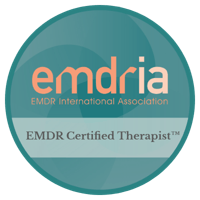Many people are surprised to learn that trauma and digestion are deeply connected; emotional trauma can profoundly affect gut health. Yet science continues to reveal the strong link between the brain and the gut, often referred to as the gut-brain axis. When trauma disrupts this delicate system, the effects can show up in everything from irritable bowel syndrome (IBS) to food sensitivities, chronic stomach pain, and even mental health challenges.
At Elnita Ottey & Associates Counseling and Consulting Services, we help clients understand how trauma affects both emotional and physical health, including digestive health. By healing the nervous system, we also open the door to better gut wellness.
The Gut-Brain Axis
The gut and brain are in constant communication through the vagus nerve and chemical messengers like serotonin and dopamine. In fact, about 90% of the body’s serotonin is produced in the gut. When trauma dysregulates the nervous system, it interrupts these signals, leading to both emotional and physical consequences.
For trauma survivors, the connection between trauma and digestion often results in:
- Stomachaches, cramps, or chronic digestive discomfort
- Irritable bowel syndrome (IBS) or inflammatory bowel disease (IBD) flare-ups
- Changes in appetite or unexplained weight fluctuations
- Food sensitivities or intolerance
Research published in World Journal of Gastroenterology highlights that individuals with PTSD are significantly more likely to develop gastrointestinal disorders (source). This is more than coincidence—it’s biology.

How Stress Disrupts Digestion
When trauma triggers the fight-or-flight response, blood flow is redirected away from the stomach and intestines to the muscles, preparing the body for survival. In small doses, this is harmless. But in chronic stress, digestion becomes chronically disrupted.
Some of the most common patterns include:
- Slowed digestion → constipation, bloating, nausea
- Overactive digestion → diarrhea, stomach cramping
- Increased inflammation → higher risk of ulcers and IBS
- Altered gut microbiome → changes in healthy bacteria that affect immunity and mood
This ‘gut imbalance’ highlights the strong link between trauma and digestion; many survivors experience both digestive issues and emotional symptoms such as anxiety or depression.
Trauma, the Nervous System, and the Vagus Nerve
The vagus nerve plays a central role in regulating digestion. When trauma keeps the body in a heightened state of arousal, vagal tone (the nerve’s ability to send calming signals) is weakened.
Low vagal tone has been linked to:
- IBS and other digestive disorders
- Chronic inflammation
- Reduced ability to relax after stress
Fortunately, therapies that strengthen vagal tone—such as mindfulness, deep breathing, and EMDR therapy—can help restore balance.
Pathways to Healing
Healing the gut-brain axis requires an integrated approach that addresses both emotional trauma and digestion issues, as well as overall physical health. At Elnita Ottey & Associates, we use research-based therapies that calm the nervous system and support overall wellness:
- EMDR Therapy – reduces traumatic triggers that keep the body in stress mode.
- Trauma-Focused CBT – helps reframe thoughts that contribute to anxiety and gut distress.
- Mind-body practices – mindfulness, grounding, and relaxation exercises activate the parasympathetic (“rest and digest”) system.
- Lifestyle support – sleep, nutrition, and gentle movement can strengthen gut health and resilience.
Studies show that trauma-informed interventions can significantly reduce both PTSD symptoms and related gastrointestinal complaints (National Library of Medicine).

Why This Matters for Everyday Wellness
If you’ve struggled with unexplained digestive issues, the problem may not just be physical; it may be rooted in unresolved trauma. By addressing both the emotional and physiological aspects of trauma, healing becomes more complete and sustainable.
At Elnita Ottey & Associates, our goal is to help clients not only recover from trauma but also reclaim their health—body, mind, and spirit.
💡 Struggling with trauma and digestion issues like IBS, chronic stomach pain, or gut health challenges? You’re not alone. At Elnita Ottey & Associates, we use EMDR therapy and trauma-informed care to help clients restore balance to the brain, body, and gut.
📍 In-person sessions available in Monroe, NC and the Charlotte, NC metro area.
🌐 Virtual therapy offered in NC, SC, TN, OK, CO, OR, and VT.
➡️ Learn more at www.elnitaottey.com or find a certified EMDR therapist at www.emdria.org.








